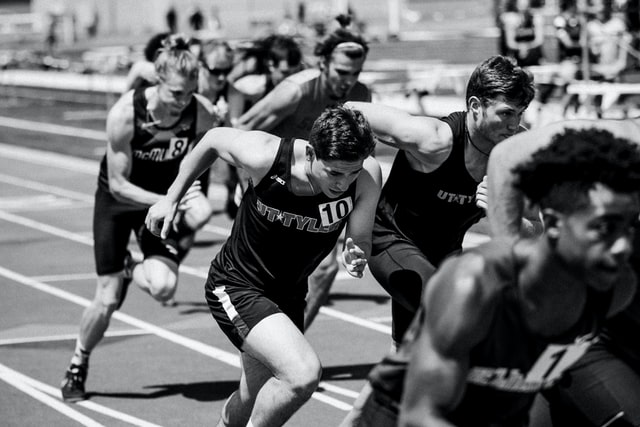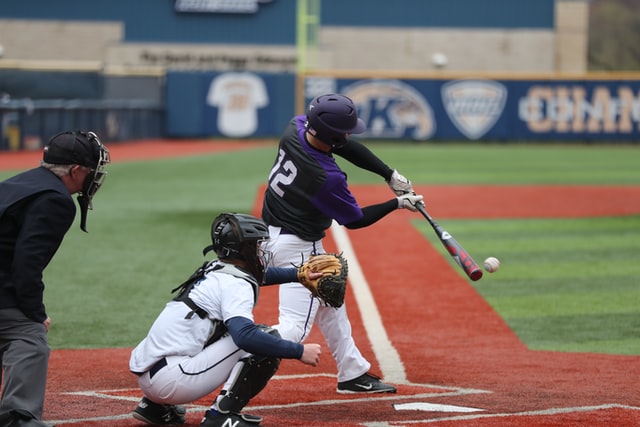The United States of America has viable college sports leagues treated as the breeding ground for most prominent American sports persons. These leagues are filled with college students who desire to become professional athletes someday, so they are given an opportunity to nurture and grow their talent from a grassroots level.
With the abundant resources, many US colleges, through their Sports Department, offer numerous scholarships to budding athletes, and these scholarships can help enhance the performance of the sports teams. These students receive scholarship packages that will enable them to attend college and have sporting equipment together with training sessions to improve their skills in sports.

All these athletes compete in a league overseen by the National Collegiate Athletic Association (NCAA). This is a private non-profit organization operating for over 100 years, and its start-up was triggered by the race challenge between Harvard and Yale universities. It was founded on 31 March 1906. It developed to become a stronghold organization that regulates student-athletes from thousands of colleges and universities. NCAA headquarters is suited in Indianapolis, Indiana in the US, and the current president is Mark Emmert. This organization holds annual sporting competitions in college sports, and they are significant events that dominate the sporting calendar in the US. Sports sanctioned by NCAA include basketball, baseball for men, beach volleyball for women, softball for women, football for men, cross country events, field hockey, golf, fencing, and ice hockey, among others. This organization houses many sporting activities done in the US and across the globe [Source].
NCAA had been operating on specific rules that prompted student-athletes to take the organization to the US courts. Reports showed that college student-athletes generate a lot of millions of dollars as profits in their activities. These profits are then shared among the schools, colleges, universities, coaches, conferences, network executives, and any third parties who would have contributed to organizing the sporting events. The NCAA regulations state that the student-athletes under their wings are only compensated in their scholarship programs channeled towards their education. A third-party sponsor or corporation can pay a student-athlete. Still, NCAA emphasized that the student-athlete should not get any extra money since they have scholarships that cover their expenses [Source]. In other words, student-athletes are not paid for their services like how sporting teams pay their players after playing soccer or cricket.

NCAA backed up their law of not paying student-athletes by saying that these athletes need to maintain their amateur status to distinguish between an amateur athlete and a professional one. Under these regulations, student-athletes are also not allowed to receive any payment for playing sports or receive any money based on performance. They are forbidden from being represented or marketed by a sports agent and even become ambassadors of any commercial products or even endorse them [Source].
The College Bill of Rights passed in December 2017 had mandated that student-athletes be given a share of the division’s profits that would have generated. The Fair Pay to Play Act introduced on 4 February 2019 allowed college students to acquire endorsements and sponsorships. They would still be eligible to participate in college athletics. These laws were passed to ensure these college athletes are compensated for their sweat when doing sporting activities [Source].
The US Supreme court has now made a ruling in favor of the college athletes against the NCAA regulations in compensating the athletes. The athletes had taken NCAA to court because of its restrictions that oppressed athletes from gaining ground in their careers. The case was filed by members of top-tier basketball and American football teams. These teams are popular, and their events bring in many profits for NCAA; hence, they felt that they should be compensated adequately for their efforts, making some people very rich. According to 2019 financial reports from NCAA, college sports generated about $18.9 billion, and the athletes never got a cent. A ruling by the high court had stated that NCAA’s regulations violate the Sherman Antitrust Act, which is a law against monopolization tendencies in business practices.
In the given ruling, the US Supreme court outlined that NCAA’s conduct would be regarded as an ‘illegal act’ in any business industry. The ‘highest form’ of authority made a ruling in which the NCAA is supposed to devise ways to fully compensate its athletes for their needs. These additions should be a top-up on the already existing benefits and scholarships. NCAA president Mark Emmert uttered that his organization would continue to work with Congress to develop favorable rules and regulations for the athletes. This points to a promising future for college athletes who will finally enjoy the fruits of their labor after being starved for long by the NCAA.







































